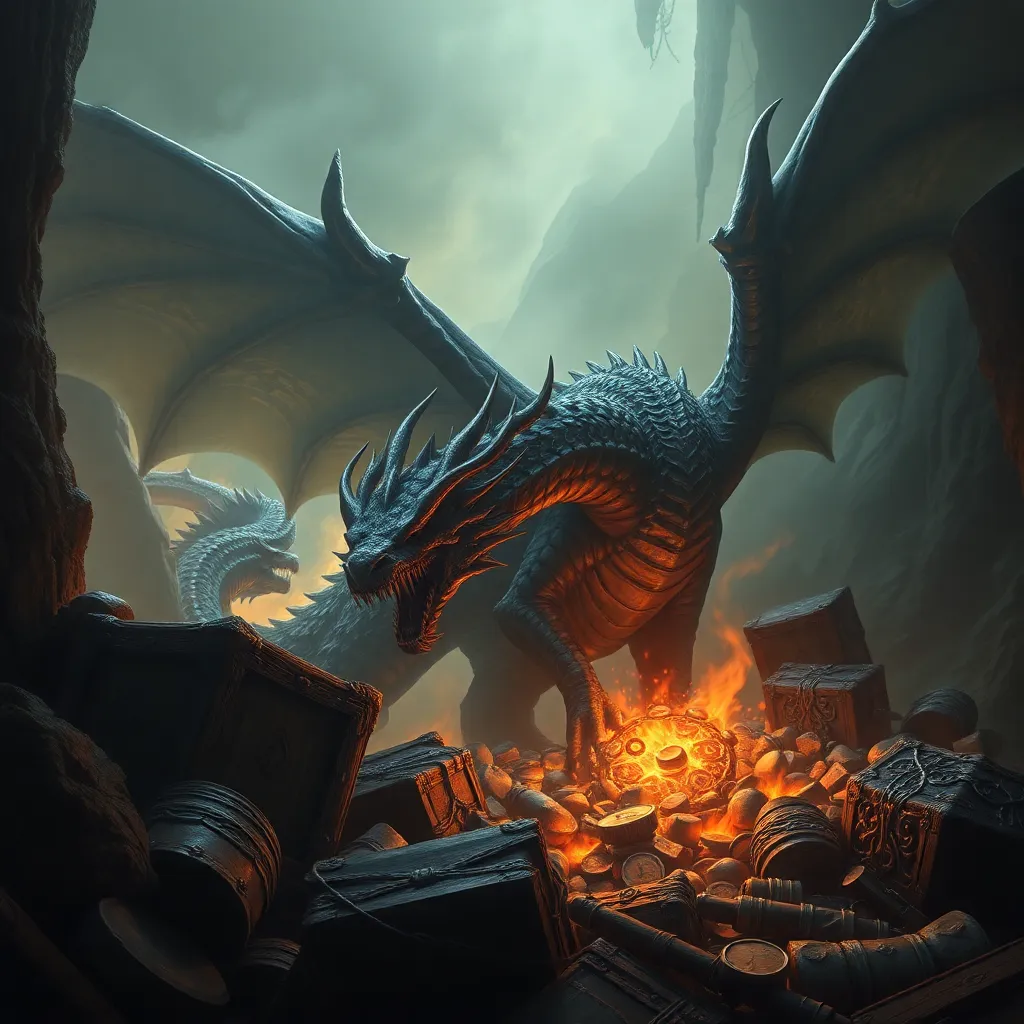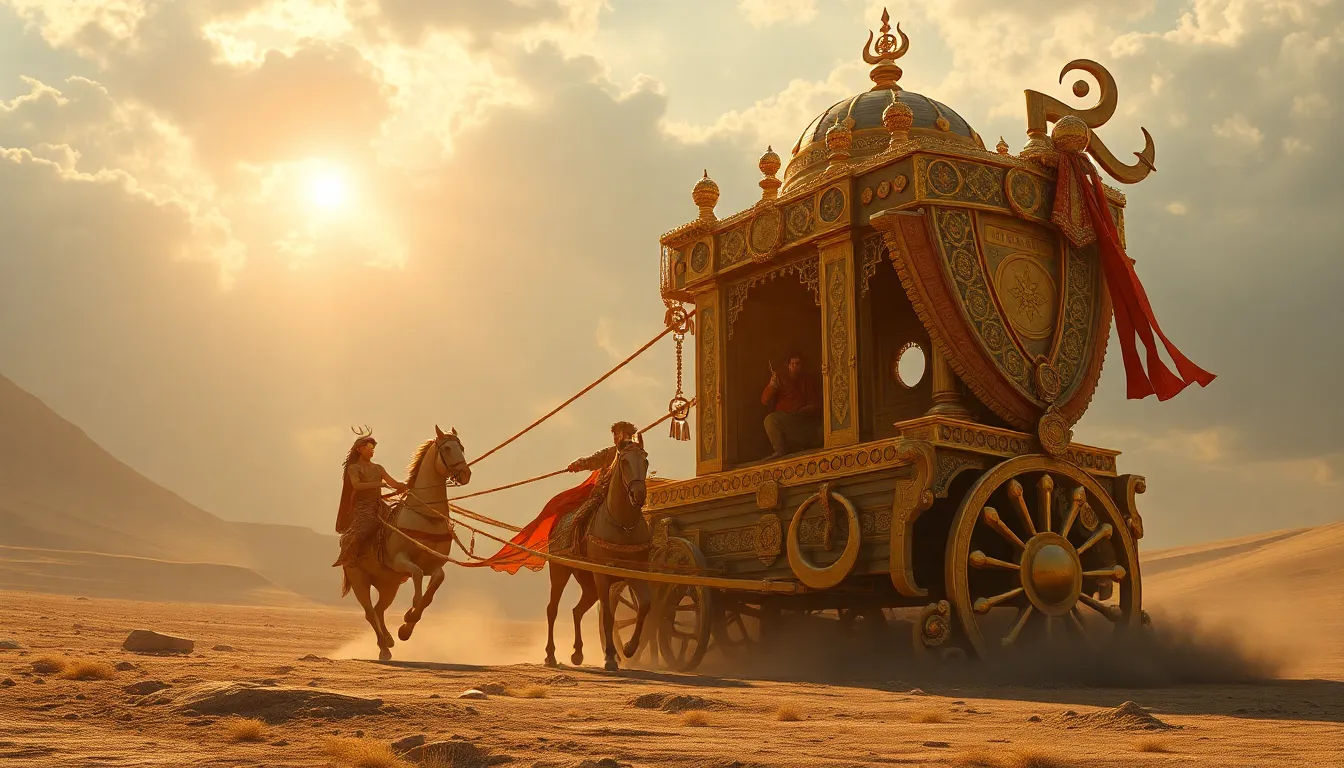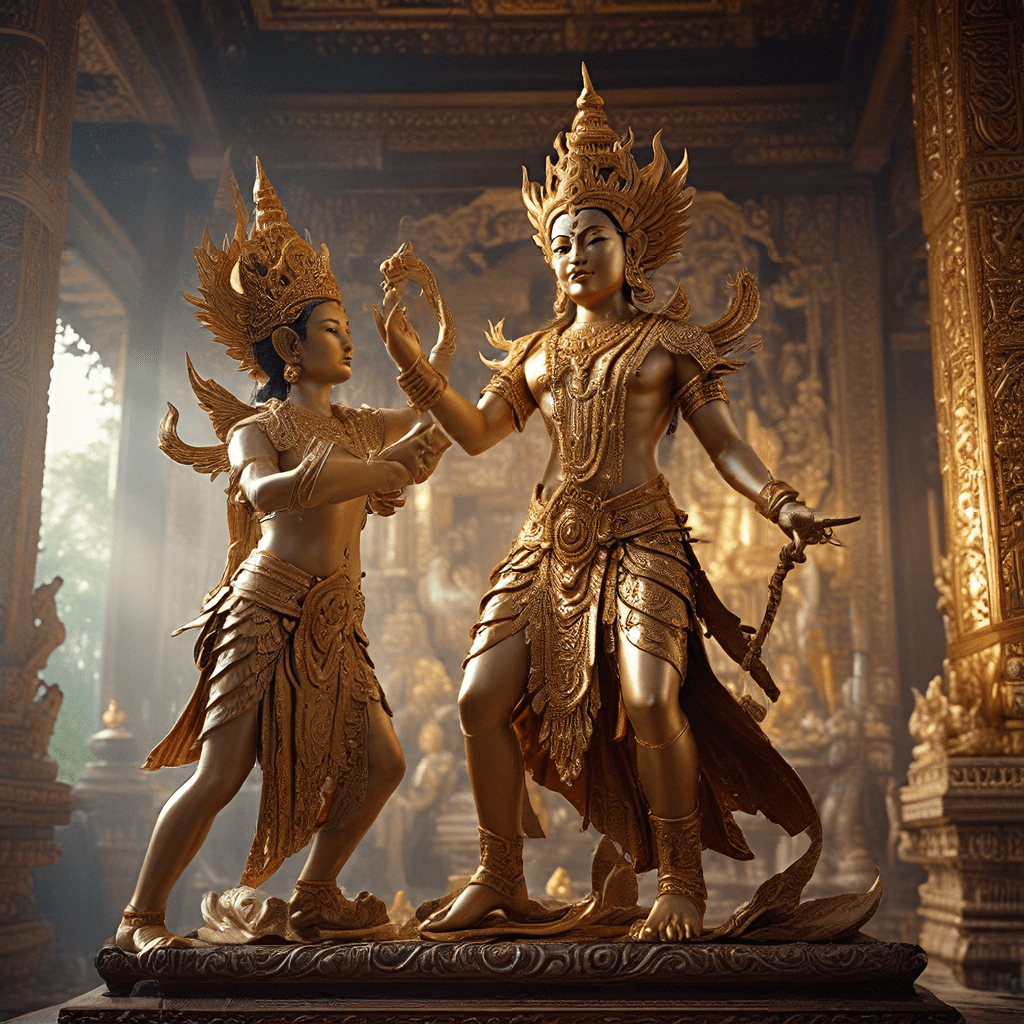The Mythical Dawn: How Different Cultures Celebrate Creation
I. Introduction
The term “mythical dawn” refers to the various narratives and stories that describe the beginnings of the world and humanity, often intertwined with spiritual beliefs. In the context of creation myths, this mythical dawn symbolizes the moment when the universe was born, and life began to flourish.
Creation myths are fundamental to understanding the values, beliefs, and identities of different cultures. They serve as a narrative framework through which communities interpret their origins and relationship with the cosmos. This article explores how diverse cultures celebrate creation through their unique myths, rituals, and traditions.
II. The Significance of Creation Myths
Creation myths play a crucial role in shaping cultural identity, offering explanations for human existence and the natural world. These myths often contain common themes and archetypes that resonate across various societies.
- Role of creation myths in shaping cultural identity: They provide a sense of belonging and continuity, linking generations through shared narratives.
- Common themes and archetypes: Many creation stories feature similar motifs, such as chaos giving way to order, the emergence of deities, and the creation of humans from divine substances.
- The relationship between myth and historical context: Creation myths often reflect the historical circumstances and environmental conditions of the cultures that tell them.
III. Indigenous Perspectives on Creation
Indigenous cultures around the world have rich and varied creation stories that reflect their deep connection to the land and nature. These stories often emphasize the significance of the Earth and its elements.
- Overview of Indigenous creation stories: Many Indigenous myths describe the Earth as a living being, with creation often attributed to animal spirits or ancestors.
- Celebration practices among Native American tribes: Rituals such as the Powwow and the Sun Dance are examples of celebrations that honor creation and the cycles of nature.
- The role of nature in Indigenous mythologies: Nature is often seen as a teacher, with animals, plants, and celestial bodies playing significant roles in creation narratives.
IV. Creation Myths in Ancient Civilizations
Ancient civilizations each had their own creation myths that influenced their cultures and rituals. These myths often involved elaborate cosmologies and deities.
- Egyptian creation myths and their rituals: The Egyptian mythology includes stories of creation from the primordial waters, with gods like Ra playing key roles. Rituals often included offerings to these gods to ensure the continuation of life.
- Mesopotamian tales: Enuma Elish and the New Year festival: The Enuma Elish describes the creation of the world from chaos and the establishment of order, celebrated during the New Year festival with elaborate ceremonies.
- The significance of the creation myth in the Hindu tradition: Hindu creation stories, such as those found in the Rigveda, illustrate the cyclical nature of creation and destruction, celebrating these cycles through festivals like Diwali.
V. Creation in Eastern Philosophies
Eastern philosophies offer unique perspectives on creation, often intertwining with concepts of balance and harmony.
- Chinese creation myths and their ties to cosmology: Myths such as Pangu’s emergence from chaos emphasize the harmonious interplay of yin and yang, reflecting a deep connection between creation and the cosmos.
- Buddhist perspectives on creation and existence: Buddhism often focuses on the cycle of birth, death, and rebirth, viewing creation as an ongoing process rather than a singular event.
- Japanese Shinto creation stories and seasonal festivals: Shinto creation myths, such as those involving the deities Izanagi and Izanami, are celebrated through festivals like Matsuri, which honor the gods and the changing seasons.
VI. Creation Narratives in Abrahamic Religions
The Abrahamic religions—Judaism, Christianity, and Islam—each have distinct creation narratives that influence their followers’ beliefs and practices.
- The Genesis creation narrative in Judaism and Christianity: The Book of Genesis describes the creation of the world in six days, culminating in the Sabbath, which is celebrated as a day of rest and reflection.
- Islamic creation beliefs and the celebration of Eid: In Islam, creation is attributed to Allah, and festivals like Eid al-Fitr and Eid al-Adha celebrate divine mercy and the completion of important religious observances.
- Comparative analysis of creation and celebration across these religions: While differing in details, these narratives share themes of divine creation and the importance of community and gratitude.
VII. Modern Celebrations of Creation
In contemporary society, many festivals honor the Earth and creation, reflecting a growing awareness of environmental issues.
- Festivals that honor the Earth and creation: Events like the Harvest Festival and the Summer Solstice celebrate the bounty of nature and the cycles of life.
- The influence of creation myths on modern environmental movements: Many environmental activists draw inspiration from creation myths to advocate for the protection of the Earth and its resources.
- Global celebrations such as Earth Day and their cultural significance: Earth Day serves as a reminder of humanity’s responsibility towards the planet, incorporating diverse cultural perspectives on creation and stewardship.
VIII. The Role of Art and Literature in Depicting Creation
Art and literature have long been mediums through which creation myths are expressed and explored.
- Artistic representations of creation myths across cultures: From ancient pottery to modern installations, artists depict creation stories to convey cultural values and beliefs.
- Literary interpretations and modern adaptations of creation stories: Many contemporary authors reimagine creation myths, weaving them into narratives that resonate with modern audiences.
- The impact of storytelling on cultural memory and celebration: Storytelling preserves and transmits cultural heritage, ensuring that creation myths remain relevant across generations.
IX. The Interplay Between Science and Myth
In a world increasingly influenced by scientific understanding, creation myths continue to coexist with scientific explanations.
- How creation myths coexist with scientific explanations: Many people find value in both science and myth, using each to address different aspects of existence.
- The cultural implications of integrating scientific understanding with myth: This integration can foster a richer understanding of humanity’s place in the universe.
- Future of creation stories in a rapidly changing world: As global challenges arise, creation myths may evolve, adapting to new contexts while retaining their core messages.
X. Conclusion
In summary, creation myths from various cultures reveal profound insights into human existence, identity, and the natural world. They continue to inspire celebrations that honor our origins, embodying values of gratitude and stewardship.
The relevance of creation myths endures, reminding us of our shared humanity and the diverse ways we celebrate the miraculous act of creation itself.



